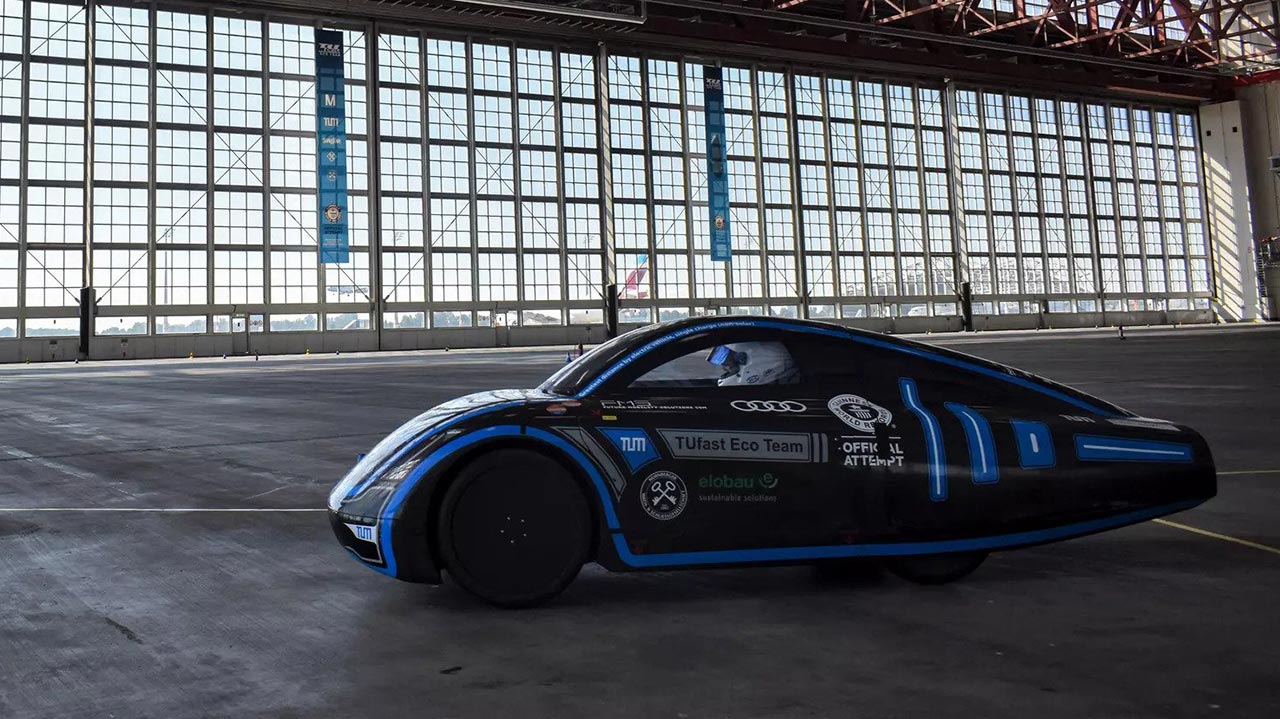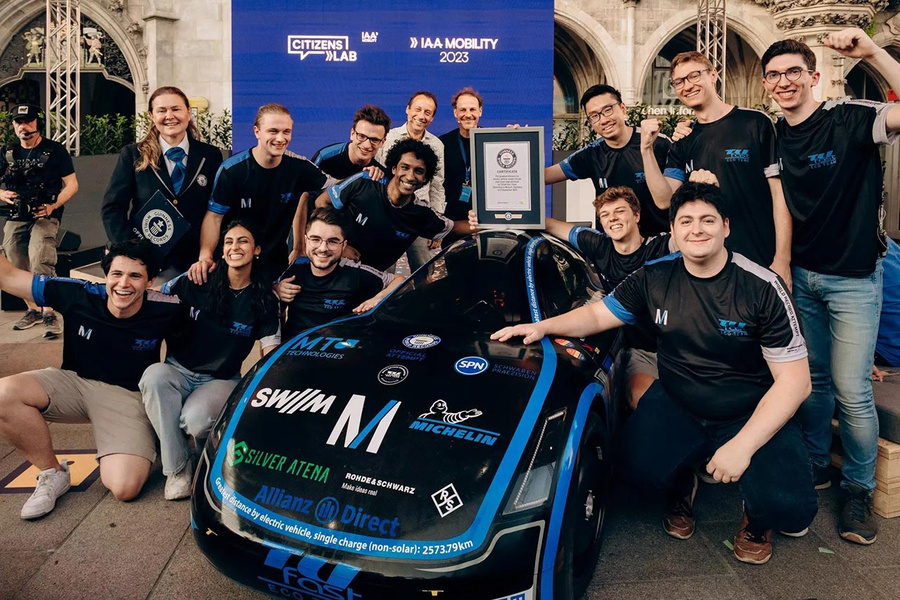In pursuit of the Guinness world record, the student initiative modified the "muc022", which the team had already used to take part in competitions for efficient electric cars. Concentrating primarily on aerodynamic design and lightweight construction, the young engineers installed a larger battery with an output rating of 15.5 kilowatt hours to bring the vehicle up to world-record class. The Muc022 is driven by a permanently excited synchronous motor (PSM) with an output of 400 watts.
Munich airport made the record run possible, providing an empty airplane hangar. The hangar meant that the team would still be able to set the world record even under poor weather conditions. The mark to beat was set by the previous recordholder at 1608.54 kilometers.
The TUM team managed to cover that distance in only four days. But since the battery on board the muc022 still wasn't empty, the team kept right on going. At the end of the trip, after 99 hours on the road the odometer showed 2.573,79 kilometers.
In terms of energy, the result also means the TUfast Eco team consumed only 0,6 kilowatt hours to drive 100 kilometers. By way of comparison: Extremely economical series vehicles consume approximately 13 kWh for 100 kilometers.
Source: TUM


